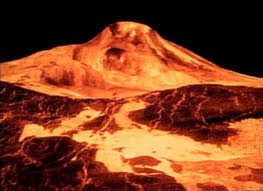Neptune is the final planet, and gas giant, in our solar system. It has been since 2-3 years ago. It was called the 8 or 9 planet because of Pluto going into it's orbit years for 20 years.The scientists use to say Pluto is the last planet, but now they say Pluto is a dwarf star. That means it is big like a planet, but is a star.
Neptune is a bright blue and has a dark blue spot. That is, of course, called the Dark Spot. They say the Dark Spot is gone but reappeared. The rain is supposed to be diamonds! I definitely said diamonds!
It is so cold on Neptune that the spacecrafts go unmanned. It gets down to -340 degrees Fahrenheit! That's really cold! Brr!!
Well that is the end of the solar system.:( but there will be more series of posts on other stuff. Well, next is a different series, so look for them right here!:{(]
Friday, June 4, 2010
Friday, May 14, 2010
Uranus

Uranus is yet another "Gas Giant". The atmosphere has helium, hydrogen, and methane. Methane makes it look blue-green.
Uranus is tipped over because the North and South poles are sideways so it is like a ball rolling around the sun instead of like a top spinning around the sun.
Of course, it is named after a Roman god. You might be, too. Uranus was discovered years after the ones in front of it.
Next is Neptune! The finale is closer than you think, huh?:(
Next is Neptune! The finale is closer than you think, huh?:(
Friday, May 7, 2010
Saturn

Saturn's axis is tilted like Earth's, giving it seasons. Saturn has over 30 moons. 1 moon, called Titan, is almost as big as Mercury! Most of the moons are in the rings.
Saturn has thousands of rings. Saturn is the second largest planet in our solar system. The stripes on the planet are bands of clouds blown by 1000 mph winds. The rings and the bands make Saturn appear beautiful to us, but it's freezing cold and too stormy for us to survive there.
Saturn is, like Jupiter, a gaseous planet, so we couldn't walk around on it like the earth or our moon. The gases are mostly hydrogen and helium.
Next is Uranus. Don't lose your temper!:)
Thursday, May 6, 2010
Jupiter

Jupiter is, obviously, the biggest planet in our solar system. It has a big red spot. Freaky, isn't it? I know, because I was freaked out by the picture too. The hurricane is inside of the red spot. Jupiter has lightning around it, so don't think it is safe to stay. Plus, you need a spacesuit to stay there.
Next is Saturn!
Next is Saturn!
Tuesday, May 4, 2010
Mars
Thursday, April 29, 2010
Venus

Venus is actually a lot like Mercury , to tell you the truth. It is hotter than Mercury, 120 degrees hotter, to be exact. This is because it has a huge atmosphere and Mercury doesn't. Venus has acid rain, too, so spacecrafts melt after awhile. NASA has sent 22 spacecrafts to Venus alone!Amazing, right?
Next is Mars! I hope martians aren't going to invade Earth! Coming faster than a light year!
Next is Mars! I hope martians aren't going to invade Earth! Coming faster than a light year!
Wednesday, April 28, 2010
Mercury

Mercury is the first planet in our solar system and is closest to the sun. It is the hottest planet. It is 750 degrees Fahrenheit when the sun is shining and -300 degrees when it is dark. That's a 1,050 degrees difference! Only one spacecraft landed on Mercury. It is called the Mariner 10. It took a lot of pictures. NASA runs operations to other planets like Mercury.
Want more info on other planets? Next is Venus. Coming soon!
Want more info on other planets? Next is Venus. Coming soon!
Subscribe to:
Comments (Atom)
